How to Address Privacy Concerns in Qualitative Research Interviews
How to Address Privacy Concerns in Qualitative Research Interviews
How to Address Privacy Concerns in Qualitative Research Interviews



In qualitative research interviews, achieving deep insights into consumer behavior hinges on maintaining participant privacy and confidentiality. This imperative not only aligns with ethical standards but also fosters trust crucial for research integrity. Effective management of privacy concerns requires robust implementation of best practices and compliance strategies throughout the interview process. Key measures include obtaining informed consent transparently, anonymizing and securing data rigorously, and enforcing confidentiality through non-disclosure agreements and restricted access protocols.
Transparency in communication about data handling practices and adherence to ethical review processes further enhance participant trust and compliance with regulatory standards like GDPR or HIPAA. Empowering participants with data access and feedback mechanisms reinforces ethical engagement. By prioritizing these approaches, market research agencies navigate privacy concerns adeptly, ensuring that qualitative research remains a reliable source of nuanced insights that drive informed decision-making and strategic business outcomes.
Common Challenges in Qualitative Research Interviews
Qualitative interviews, while valuable for gaining deep insights into consumer behavior and perceptions, come with several common challenges that researchers often encounter:
Bias and Subjectivity: Interviewer biases can influence the framing of questions, interpretation of responses, and overall direction of the interview, potentially skewing the data collected.
Participant Bias: Interviewees may provide socially desirable responses or alter their answers to conform to perceived expectations or norms, rather than offering genuine insights.
Limited Generalizability: Qualitative findings are typically context-specific and may not be easily generalized to broader populations or settings due to the small sample sizes and qualitative nature of the data.
Interviewer Skill Variability: The quality and depth of insights gathered can vary depending on the interviewer's experience, skill in probing, and ability to build rapport with participants.
Time and Resource Intensity: Qualitative interviews require significant time and resources for planning, conducting, transcribing, and analyzing data, making scalability challenging.
Ethical Considerations: Ensuring participant confidentiality, obtaining informed consent, and addressing potential ethical dilemmas, such as privacy concerns and participant vulnerability, require careful management.
Interpretation and Analysis: Analyzing qualitative data involves subjective interpretation, coding, and theme identification, which can introduce researcher bias and require rigorous validation.
Cultural and Language Barriers: Conducting interviews across diverse cultural contexts or language barriers may pose challenges in communication, understanding nuances, and interpreting responses accurately.
Logistical Issues: Scheduling interviews, managing participant availability, and coordinating logistics, especially in field research or cross-regional studies, can be complex and time-consuming.
Participant Engagement: Keeping participants engaged throughout the interview process, maintaining their interest and willingness to share detailed insights, can be challenging, particularly in lengthy interviews or sensitive topics.
Navigating these challenges requires careful planning, methodological rigor, and adherence to ethical guidelines to ensure the reliability, validity, and ethical integrity of qualitative research outcomes.
How to Tackle Privacy Concerns in Qualitative Research Interviews
1. Obtain Informed Consent
Explain Purpose and Scope: Clearly communicate the objectives, methods, and potential risks of the research to participants before obtaining their consent.
Voluntary Participation: Emphasize that participation is voluntary, and participants have the right to withdraw at any time without consequences.
2. Anonymize and Secure Data
Anonymization: Remove personally identifiable information (PII) from interview transcripts and data sets to protect participants' identities.
Data Encryption: Use secure data storage and transmission methods, such as encryption, to safeguard confidential information against unauthorized access.
3. Confidentiality Measures
Non-disclosure Agreements: Implement non-disclosure agreements (NDAs) with interviewers and research team members to ensure they maintain confidentiality.
Limited Access: Restrict access to sensitive data only to authorized personnel involved in the research project.
4. Transparent Data Handling Practices
Data Handling Policies: Develop and adhere to clear policies and procedures for handling, storing, and disposing of participant data securely.
Transparency: Inform participants about how their data will be used, stored, and shared, including any potential collaborations or third-party involvement.
5. Ethical Review and Compliance
Ethics Review Board: Seek approval from an institutional review board (IRB) or ethics committee to ensure research protocols adhere to ethical guidelines and regulatory requirements.
Compliance with Regulations: Adhere to relevant data protection laws and regulations, such as GDPR in Europe or HIPAA in the United States, to protect participant rights and privacy.
6. Participant Empowerment
Data Access: Offer participants the option to review their own responses and provide feedback on how their data is interpreted and used.
Participant Support: Provide avenues for participants to address concerns or seek clarification about the research process and their rights.
Conversational AI voice agents in Qualitative Research Interviews
Consistency and Standardization: AI voice agents can deliver standardized interview protocols consistently, ensuring that all participants receive the same questions and prompts in a neutral manner. This minimizes interviewer bias and ensures uniform data collection.
Natural Language Processing (NLP) Capabilities: AI can interpret and analyze natural language responses in real-time, enabling immediate feedback or follow-up questions based on participant answers. This capability enhances the depth of qualitative insights by probing deeper into responses dynamically.
24/7 Availability: AI agents can conduct interviews at any time, accommodating participant schedules and reducing logistical challenges associated with human interviewer availability. This flexibility improves participant engagement and response rates.
Anonymity and Reduced Social Desirability Bias: Participants may feel more comfortable disclosing sensitive information to AI agents than to human interviewers, reducing social desirability bias and improving the authenticity of responses.
Data Accuracy and Transcription Efficiency: AI automates transcription of interview recordings accurately and efficiently, minimizing errors and reducing the time and effort required for manual transcription and data entry.
Multilingual Support: AI voice agents can support interviews in multiple languages, overcoming language barriers and enabling broader participation in research studies across diverse populations.
Data Integration and Analysis: AI can integrate qualitative interview data with other sources (e.g., quantitative data, social media analytics) for comprehensive analysis, providing deeper insights into consumer behaviors and preferences.
Scalability and Cost Efficiency: AI-driven interviews can be scaled easily to accommodate large sample sizes or multiple research projects simultaneously, reducing costs associated with traditional face-to-face interviews and human interviewer resources.
Ethical Compliance and Transparency: AI agents can be programmed to adhere strictly to ethical guidelines, ensuring participant consent, confidentiality, and data protection throughout the interview process.
Continuous Improvement: AI can learn from each interaction, improving question formulation, response handling, and overall interview quality over time through machine learning algorithms.
In summary, conversational AI voice agents like Metaforms offer significant benefits for qualitative interviews by enhancing consistency, accessibility, accuracy, and participant engagement while reducing biases and logistical constraints. Integrating AI into qualitative research methodologies can ultimately lead to more robust and insightful data collection, analysis, and decision-making in various industries and research domains.
Conclusion
Addressing privacy concerns in qualitative research interviews requires a proactive approach that prioritizes participant confidentiality, transparency, and ethical integrity. By implementing these best practices and compliance strategies, market research agencies foster trust with participants, uphold ethical standards, and ensure the confidentiality of sensitive information throughout the research journey. Ultimately, prioritizing privacy not only mitigates risks and legal liabilities but also enhances the quality and credibility of research insights that drive informed decision-making in business and academia alike.
In qualitative research interviews, achieving deep insights into consumer behavior hinges on maintaining participant privacy and confidentiality. This imperative not only aligns with ethical standards but also fosters trust crucial for research integrity. Effective management of privacy concerns requires robust implementation of best practices and compliance strategies throughout the interview process. Key measures include obtaining informed consent transparently, anonymizing and securing data rigorously, and enforcing confidentiality through non-disclosure agreements and restricted access protocols.
Transparency in communication about data handling practices and adherence to ethical review processes further enhance participant trust and compliance with regulatory standards like GDPR or HIPAA. Empowering participants with data access and feedback mechanisms reinforces ethical engagement. By prioritizing these approaches, market research agencies navigate privacy concerns adeptly, ensuring that qualitative research remains a reliable source of nuanced insights that drive informed decision-making and strategic business outcomes.
Common Challenges in Qualitative Research Interviews
Qualitative interviews, while valuable for gaining deep insights into consumer behavior and perceptions, come with several common challenges that researchers often encounter:
Bias and Subjectivity: Interviewer biases can influence the framing of questions, interpretation of responses, and overall direction of the interview, potentially skewing the data collected.
Participant Bias: Interviewees may provide socially desirable responses or alter their answers to conform to perceived expectations or norms, rather than offering genuine insights.
Limited Generalizability: Qualitative findings are typically context-specific and may not be easily generalized to broader populations or settings due to the small sample sizes and qualitative nature of the data.
Interviewer Skill Variability: The quality and depth of insights gathered can vary depending on the interviewer's experience, skill in probing, and ability to build rapport with participants.
Time and Resource Intensity: Qualitative interviews require significant time and resources for planning, conducting, transcribing, and analyzing data, making scalability challenging.
Ethical Considerations: Ensuring participant confidentiality, obtaining informed consent, and addressing potential ethical dilemmas, such as privacy concerns and participant vulnerability, require careful management.
Interpretation and Analysis: Analyzing qualitative data involves subjective interpretation, coding, and theme identification, which can introduce researcher bias and require rigorous validation.
Cultural and Language Barriers: Conducting interviews across diverse cultural contexts or language barriers may pose challenges in communication, understanding nuances, and interpreting responses accurately.
Logistical Issues: Scheduling interviews, managing participant availability, and coordinating logistics, especially in field research or cross-regional studies, can be complex and time-consuming.
Participant Engagement: Keeping participants engaged throughout the interview process, maintaining their interest and willingness to share detailed insights, can be challenging, particularly in lengthy interviews or sensitive topics.
Navigating these challenges requires careful planning, methodological rigor, and adherence to ethical guidelines to ensure the reliability, validity, and ethical integrity of qualitative research outcomes.
How to Tackle Privacy Concerns in Qualitative Research Interviews
1. Obtain Informed Consent
Explain Purpose and Scope: Clearly communicate the objectives, methods, and potential risks of the research to participants before obtaining their consent.
Voluntary Participation: Emphasize that participation is voluntary, and participants have the right to withdraw at any time without consequences.
2. Anonymize and Secure Data
Anonymization: Remove personally identifiable information (PII) from interview transcripts and data sets to protect participants' identities.
Data Encryption: Use secure data storage and transmission methods, such as encryption, to safeguard confidential information against unauthorized access.
3. Confidentiality Measures
Non-disclosure Agreements: Implement non-disclosure agreements (NDAs) with interviewers and research team members to ensure they maintain confidentiality.
Limited Access: Restrict access to sensitive data only to authorized personnel involved in the research project.
4. Transparent Data Handling Practices
Data Handling Policies: Develop and adhere to clear policies and procedures for handling, storing, and disposing of participant data securely.
Transparency: Inform participants about how their data will be used, stored, and shared, including any potential collaborations or third-party involvement.
5. Ethical Review and Compliance
Ethics Review Board: Seek approval from an institutional review board (IRB) or ethics committee to ensure research protocols adhere to ethical guidelines and regulatory requirements.
Compliance with Regulations: Adhere to relevant data protection laws and regulations, such as GDPR in Europe or HIPAA in the United States, to protect participant rights and privacy.
6. Participant Empowerment
Data Access: Offer participants the option to review their own responses and provide feedback on how their data is interpreted and used.
Participant Support: Provide avenues for participants to address concerns or seek clarification about the research process and their rights.
Conversational AI voice agents in Qualitative Research Interviews
Consistency and Standardization: AI voice agents can deliver standardized interview protocols consistently, ensuring that all participants receive the same questions and prompts in a neutral manner. This minimizes interviewer bias and ensures uniform data collection.
Natural Language Processing (NLP) Capabilities: AI can interpret and analyze natural language responses in real-time, enabling immediate feedback or follow-up questions based on participant answers. This capability enhances the depth of qualitative insights by probing deeper into responses dynamically.
24/7 Availability: AI agents can conduct interviews at any time, accommodating participant schedules and reducing logistical challenges associated with human interviewer availability. This flexibility improves participant engagement and response rates.
Anonymity and Reduced Social Desirability Bias: Participants may feel more comfortable disclosing sensitive information to AI agents than to human interviewers, reducing social desirability bias and improving the authenticity of responses.
Data Accuracy and Transcription Efficiency: AI automates transcription of interview recordings accurately and efficiently, minimizing errors and reducing the time and effort required for manual transcription and data entry.
Multilingual Support: AI voice agents can support interviews in multiple languages, overcoming language barriers and enabling broader participation in research studies across diverse populations.
Data Integration and Analysis: AI can integrate qualitative interview data with other sources (e.g., quantitative data, social media analytics) for comprehensive analysis, providing deeper insights into consumer behaviors and preferences.
Scalability and Cost Efficiency: AI-driven interviews can be scaled easily to accommodate large sample sizes or multiple research projects simultaneously, reducing costs associated with traditional face-to-face interviews and human interviewer resources.
Ethical Compliance and Transparency: AI agents can be programmed to adhere strictly to ethical guidelines, ensuring participant consent, confidentiality, and data protection throughout the interview process.
Continuous Improvement: AI can learn from each interaction, improving question formulation, response handling, and overall interview quality over time through machine learning algorithms.
In summary, conversational AI voice agents like Metaforms offer significant benefits for qualitative interviews by enhancing consistency, accessibility, accuracy, and participant engagement while reducing biases and logistical constraints. Integrating AI into qualitative research methodologies can ultimately lead to more robust and insightful data collection, analysis, and decision-making in various industries and research domains.
Conclusion
Addressing privacy concerns in qualitative research interviews requires a proactive approach that prioritizes participant confidentiality, transparency, and ethical integrity. By implementing these best practices and compliance strategies, market research agencies foster trust with participants, uphold ethical standards, and ensure the confidentiality of sensitive information throughout the research journey. Ultimately, prioritizing privacy not only mitigates risks and legal liabilities but also enhances the quality and credibility of research insights that drive informed decision-making in business and academia alike.
In qualitative research interviews, achieving deep insights into consumer behavior hinges on maintaining participant privacy and confidentiality. This imperative not only aligns with ethical standards but also fosters trust crucial for research integrity. Effective management of privacy concerns requires robust implementation of best practices and compliance strategies throughout the interview process. Key measures include obtaining informed consent transparently, anonymizing and securing data rigorously, and enforcing confidentiality through non-disclosure agreements and restricted access protocols.
Transparency in communication about data handling practices and adherence to ethical review processes further enhance participant trust and compliance with regulatory standards like GDPR or HIPAA. Empowering participants with data access and feedback mechanisms reinforces ethical engagement. By prioritizing these approaches, market research agencies navigate privacy concerns adeptly, ensuring that qualitative research remains a reliable source of nuanced insights that drive informed decision-making and strategic business outcomes.
Common Challenges in Qualitative Research Interviews
Qualitative interviews, while valuable for gaining deep insights into consumer behavior and perceptions, come with several common challenges that researchers often encounter:
Bias and Subjectivity: Interviewer biases can influence the framing of questions, interpretation of responses, and overall direction of the interview, potentially skewing the data collected.
Participant Bias: Interviewees may provide socially desirable responses or alter their answers to conform to perceived expectations or norms, rather than offering genuine insights.
Limited Generalizability: Qualitative findings are typically context-specific and may not be easily generalized to broader populations or settings due to the small sample sizes and qualitative nature of the data.
Interviewer Skill Variability: The quality and depth of insights gathered can vary depending on the interviewer's experience, skill in probing, and ability to build rapport with participants.
Time and Resource Intensity: Qualitative interviews require significant time and resources for planning, conducting, transcribing, and analyzing data, making scalability challenging.
Ethical Considerations: Ensuring participant confidentiality, obtaining informed consent, and addressing potential ethical dilemmas, such as privacy concerns and participant vulnerability, require careful management.
Interpretation and Analysis: Analyzing qualitative data involves subjective interpretation, coding, and theme identification, which can introduce researcher bias and require rigorous validation.
Cultural and Language Barriers: Conducting interviews across diverse cultural contexts or language barriers may pose challenges in communication, understanding nuances, and interpreting responses accurately.
Logistical Issues: Scheduling interviews, managing participant availability, and coordinating logistics, especially in field research or cross-regional studies, can be complex and time-consuming.
Participant Engagement: Keeping participants engaged throughout the interview process, maintaining their interest and willingness to share detailed insights, can be challenging, particularly in lengthy interviews or sensitive topics.
Navigating these challenges requires careful planning, methodological rigor, and adherence to ethical guidelines to ensure the reliability, validity, and ethical integrity of qualitative research outcomes.
How to Tackle Privacy Concerns in Qualitative Research Interviews
1. Obtain Informed Consent
Explain Purpose and Scope: Clearly communicate the objectives, methods, and potential risks of the research to participants before obtaining their consent.
Voluntary Participation: Emphasize that participation is voluntary, and participants have the right to withdraw at any time without consequences.
2. Anonymize and Secure Data
Anonymization: Remove personally identifiable information (PII) from interview transcripts and data sets to protect participants' identities.
Data Encryption: Use secure data storage and transmission methods, such as encryption, to safeguard confidential information against unauthorized access.
3. Confidentiality Measures
Non-disclosure Agreements: Implement non-disclosure agreements (NDAs) with interviewers and research team members to ensure they maintain confidentiality.
Limited Access: Restrict access to sensitive data only to authorized personnel involved in the research project.
4. Transparent Data Handling Practices
Data Handling Policies: Develop and adhere to clear policies and procedures for handling, storing, and disposing of participant data securely.
Transparency: Inform participants about how their data will be used, stored, and shared, including any potential collaborations or third-party involvement.
5. Ethical Review and Compliance
Ethics Review Board: Seek approval from an institutional review board (IRB) or ethics committee to ensure research protocols adhere to ethical guidelines and regulatory requirements.
Compliance with Regulations: Adhere to relevant data protection laws and regulations, such as GDPR in Europe or HIPAA in the United States, to protect participant rights and privacy.
6. Participant Empowerment
Data Access: Offer participants the option to review their own responses and provide feedback on how their data is interpreted and used.
Participant Support: Provide avenues for participants to address concerns or seek clarification about the research process and their rights.
Conversational AI voice agents in Qualitative Research Interviews
Consistency and Standardization: AI voice agents can deliver standardized interview protocols consistently, ensuring that all participants receive the same questions and prompts in a neutral manner. This minimizes interviewer bias and ensures uniform data collection.
Natural Language Processing (NLP) Capabilities: AI can interpret and analyze natural language responses in real-time, enabling immediate feedback or follow-up questions based on participant answers. This capability enhances the depth of qualitative insights by probing deeper into responses dynamically.
24/7 Availability: AI agents can conduct interviews at any time, accommodating participant schedules and reducing logistical challenges associated with human interviewer availability. This flexibility improves participant engagement and response rates.
Anonymity and Reduced Social Desirability Bias: Participants may feel more comfortable disclosing sensitive information to AI agents than to human interviewers, reducing social desirability bias and improving the authenticity of responses.
Data Accuracy and Transcription Efficiency: AI automates transcription of interview recordings accurately and efficiently, minimizing errors and reducing the time and effort required for manual transcription and data entry.
Multilingual Support: AI voice agents can support interviews in multiple languages, overcoming language barriers and enabling broader participation in research studies across diverse populations.
Data Integration and Analysis: AI can integrate qualitative interview data with other sources (e.g., quantitative data, social media analytics) for comprehensive analysis, providing deeper insights into consumer behaviors and preferences.
Scalability and Cost Efficiency: AI-driven interviews can be scaled easily to accommodate large sample sizes or multiple research projects simultaneously, reducing costs associated with traditional face-to-face interviews and human interviewer resources.
Ethical Compliance and Transparency: AI agents can be programmed to adhere strictly to ethical guidelines, ensuring participant consent, confidentiality, and data protection throughout the interview process.
Continuous Improvement: AI can learn from each interaction, improving question formulation, response handling, and overall interview quality over time through machine learning algorithms.
In summary, conversational AI voice agents like Metaforms offer significant benefits for qualitative interviews by enhancing consistency, accessibility, accuracy, and participant engagement while reducing biases and logistical constraints. Integrating AI into qualitative research methodologies can ultimately lead to more robust and insightful data collection, analysis, and decision-making in various industries and research domains.
Conclusion
Addressing privacy concerns in qualitative research interviews requires a proactive approach that prioritizes participant confidentiality, transparency, and ethical integrity. By implementing these best practices and compliance strategies, market research agencies foster trust with participants, uphold ethical standards, and ensure the confidentiality of sensitive information throughout the research journey. Ultimately, prioritizing privacy not only mitigates risks and legal liabilities but also enhances the quality and credibility of research insights that drive informed decision-making in business and academia alike.

Nine Types of Healthcare and Medical Forms.
Medical forms are a must-have for any healthcare business or practitioner. Learn about the different kinds of medical and healthcare forms.
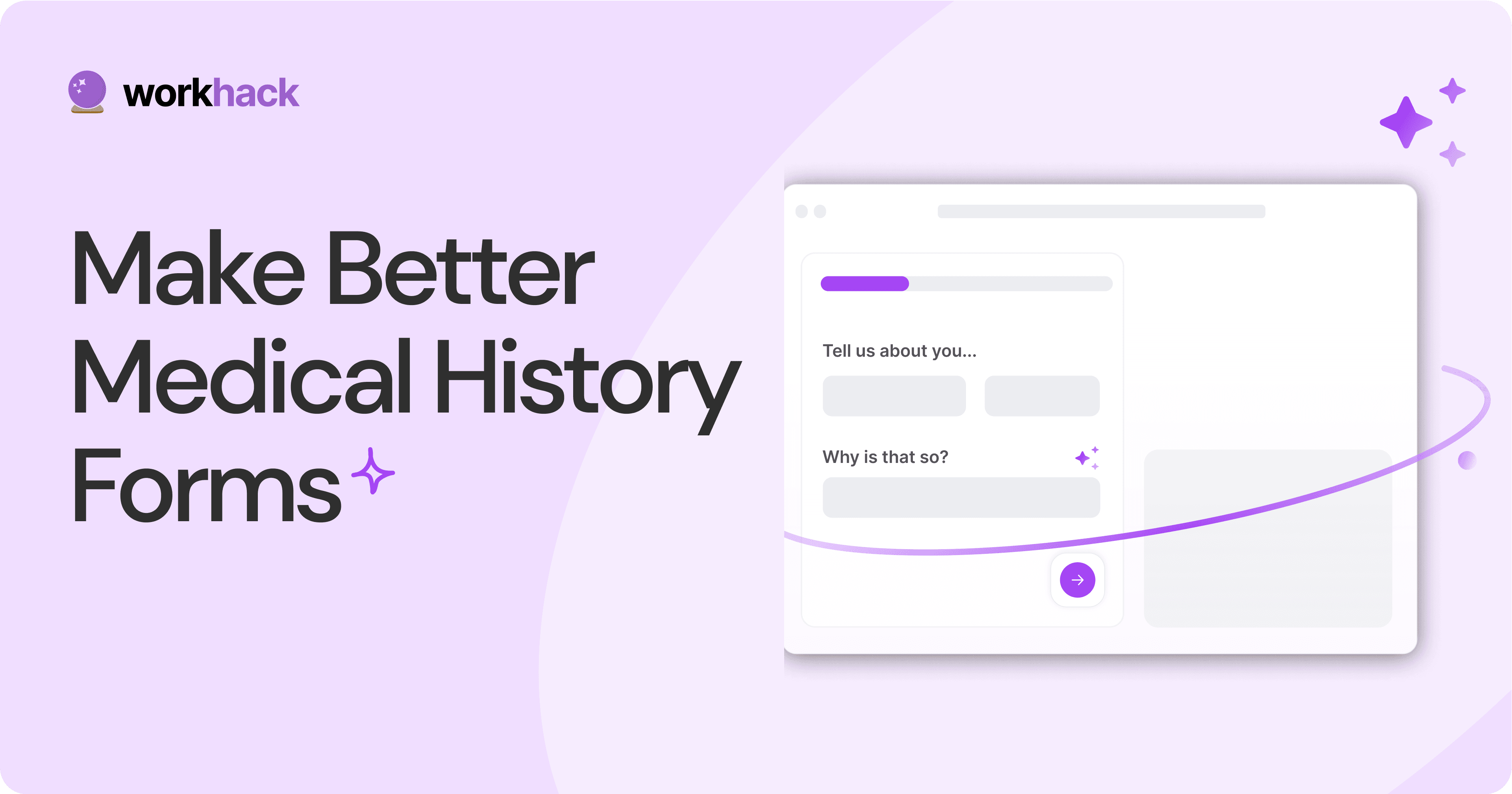
4 Tips for Better Medical History Forms.
Medical history forms are central to patient care, onboarding, and medical administration records. Learn how to make them easier to fill.
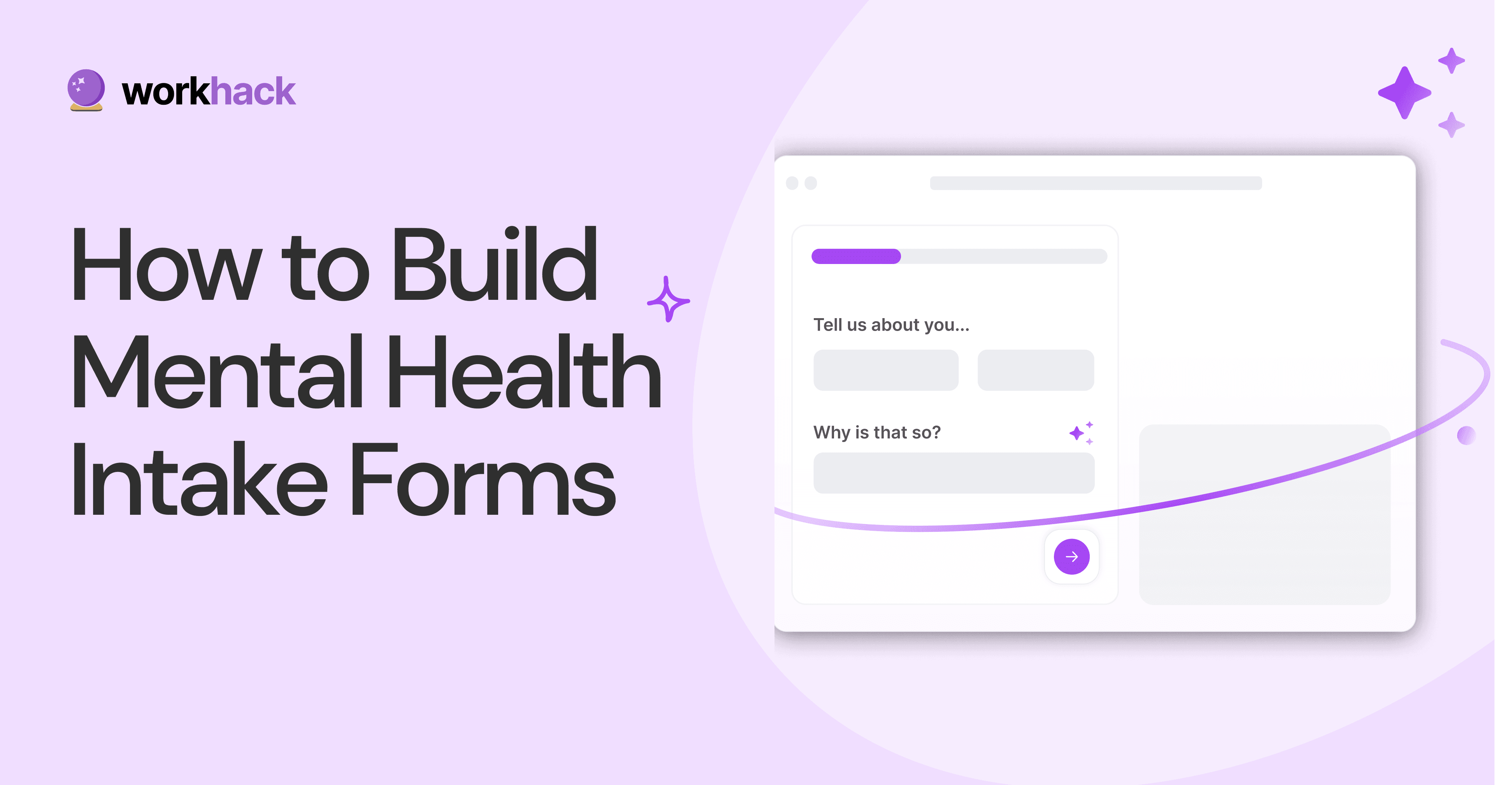
How to Build Mental Health Intake Forms?
Mental health intake forms are not like patient intake forms. Mental health intake forms deal with far more sensitive data and have specific design methods.
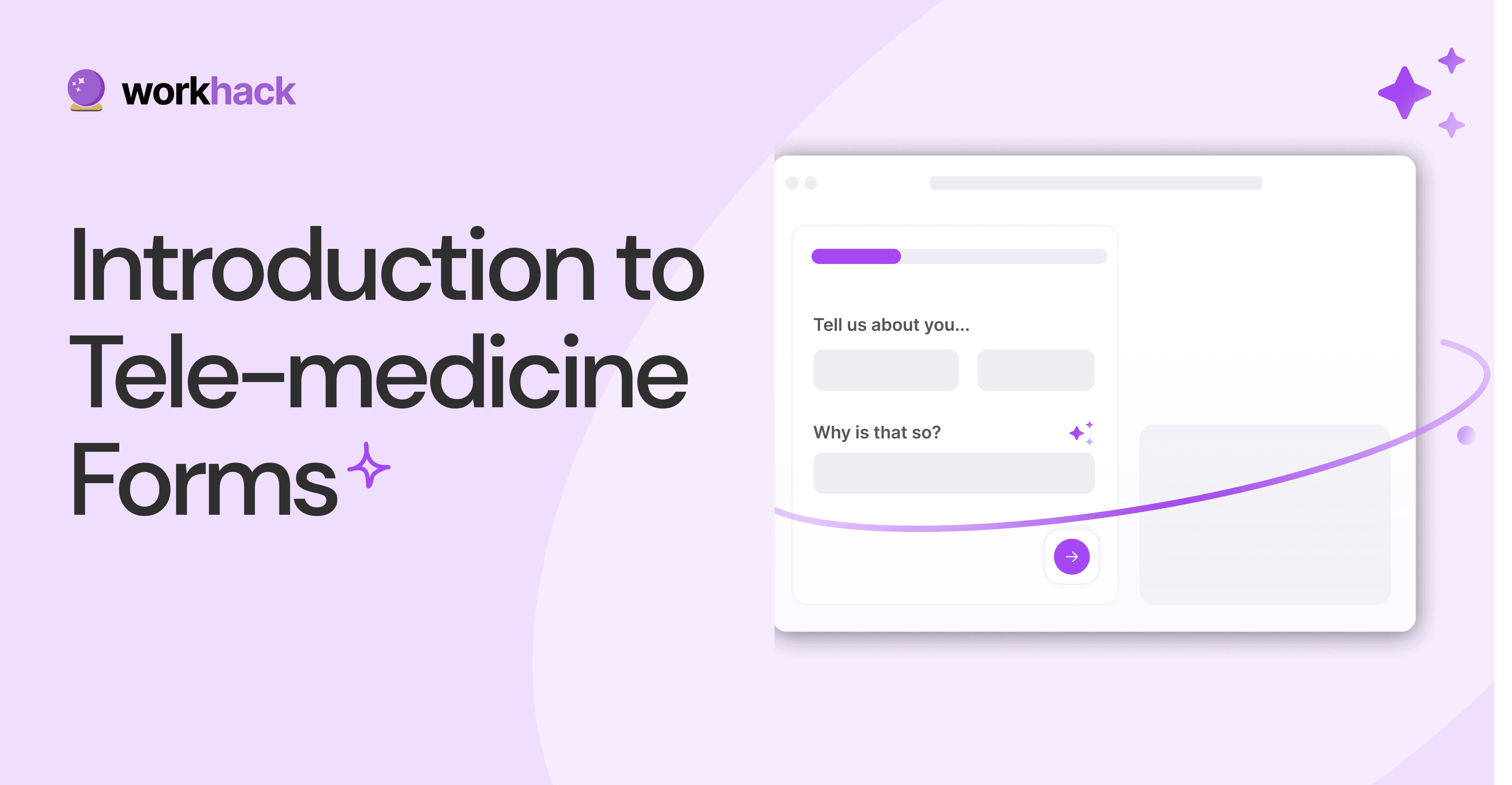
What, Why and How of Telemedicine Forms.
Telemedicine is on the rise and with different form builders out there, which one best suits your needs as a healthcare services provider?
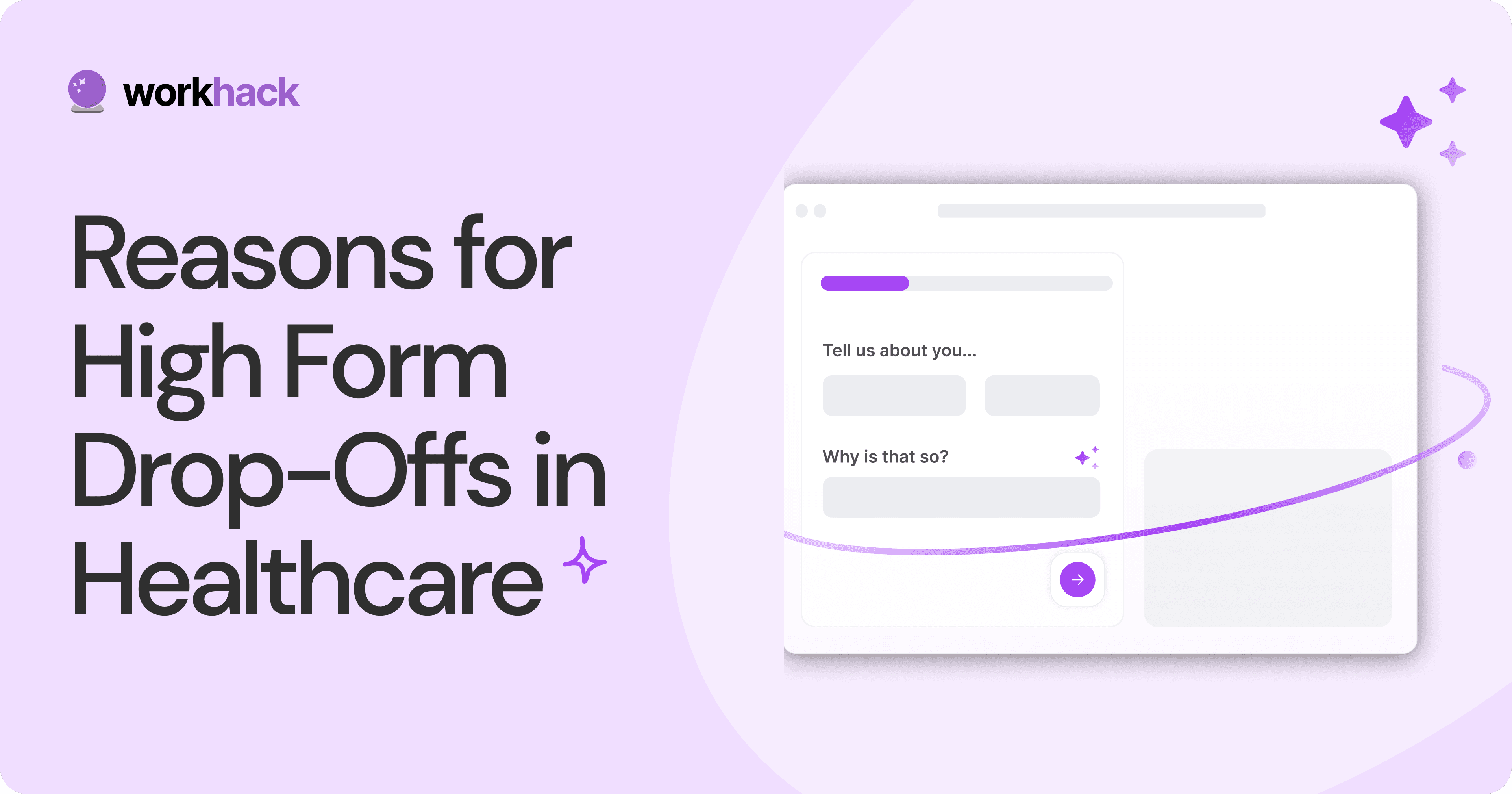
3 Reasons for Major Drop-Offs in Medical Forms.
No matter which healthcare form we pick, there are major drop-off reasons. We shall dive into the top 3 and learn how to resolve them in your next form.
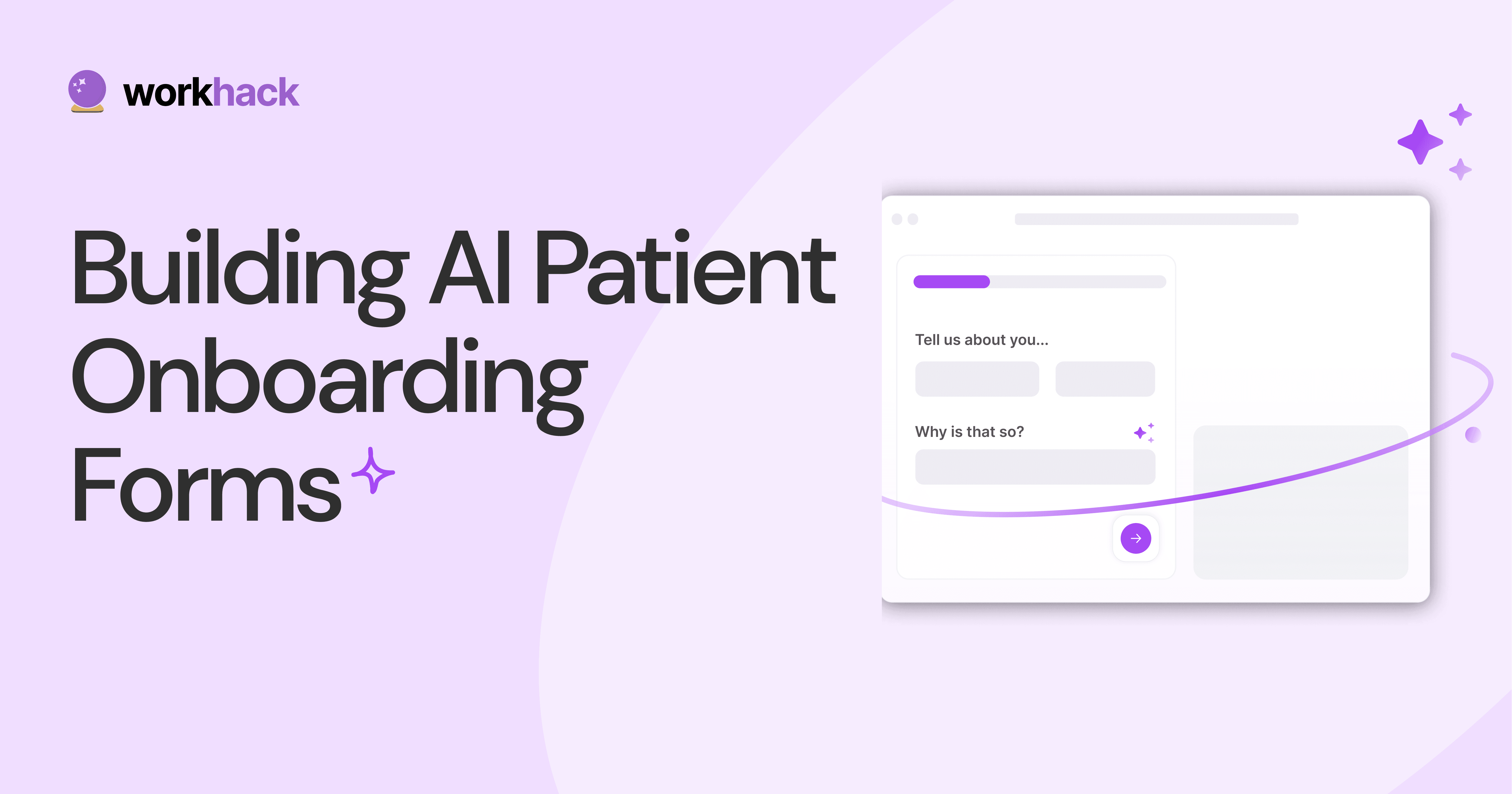
Patient Onboarding Forms - From Click to Clinic.
Patient onboarding forms are the first touchpoint for patients; getting this right for higher conversion rates is a must-have. Learn how to perfect them now.
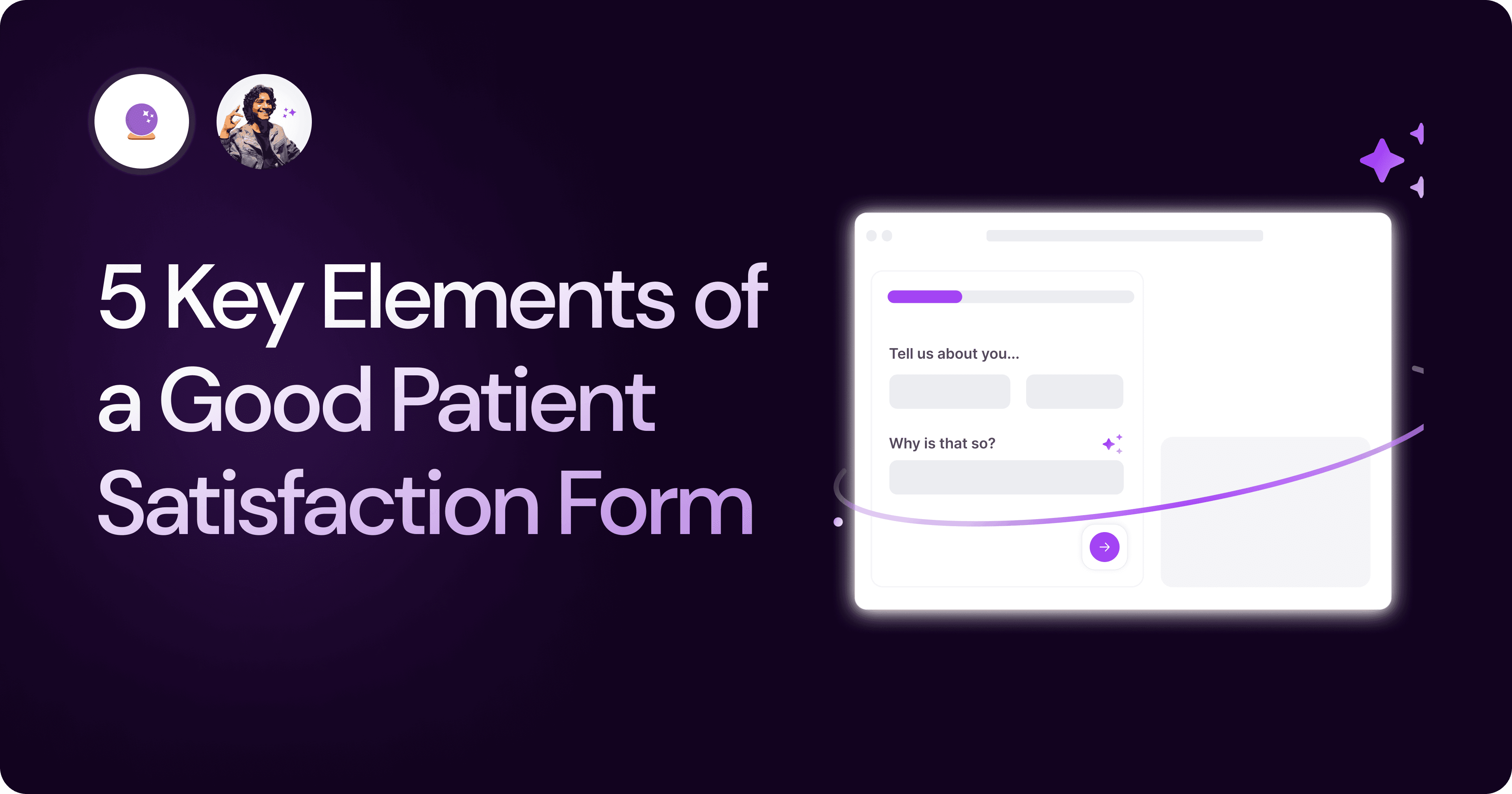
5 Key Parts of a Good Patient Satisfaction Form.
The goal of patient satisfaction surveys is to course-correct the services of a healthcare provider. Patient feedback leads to a culture of patient-centric care.
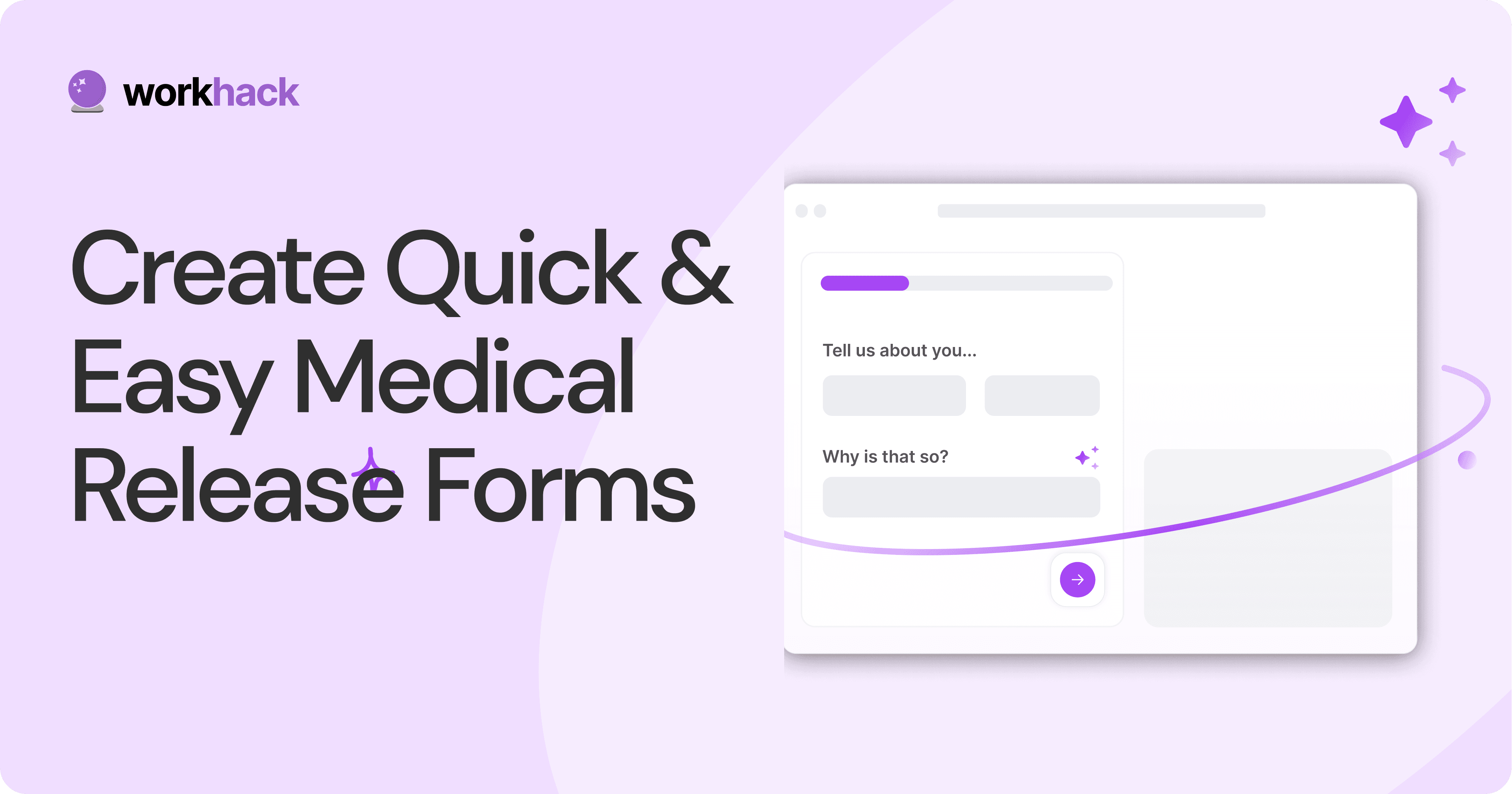
Build Quick and Easy Medical Release Forms.
Every HIPAA-compliant healthcare provider comes across medical release forms that involve details from medical history forms. Can they be shipped fast? Yes.

Nine Types of Healthcare and Medical Forms.
Medical forms are a must-have for any healthcare business or practitioner. Learn about the different kinds of medical and healthcare forms.

4 Tips for Better Medical History Forms.
Medical history forms are central to patient care, onboarding, and medical administration records. Learn how to make them easier to fill.

How to Build Mental Health Intake Forms?
Mental health intake forms are not like patient intake forms. Mental health intake forms deal with far more sensitive data and have specific design methods.

What, Why and How of Telemedicine Forms.
Telemedicine is on the rise and with different form builders out there, which one best suits your needs as a healthcare services provider?

3 Reasons for Major Drop-Offs in Medical Forms.
No matter which healthcare form we pick, there are major drop-off reasons. We shall dive into the top 3 and learn how to resolve them in your next form.

Patient Onboarding Forms - From Click to Clinic.
Patient onboarding forms are the first touchpoint for patients; getting this right for higher conversion rates is a must-have. Learn how to perfect them now.

5 Key Parts of a Good Patient Satisfaction Form.
The goal of patient satisfaction surveys is to course-correct the services of a healthcare provider. Patient feedback leads to a culture of patient-centric care.

Build Quick and Easy Medical Release Forms.
Every HIPAA-compliant healthcare provider comes across medical release forms that involve details from medical history forms. Can they be shipped fast? Yes.

Nine Types of Healthcare and Medical Forms.
Medical forms are a must-have for any healthcare business or practitioner. Learn about the different kinds of medical and healthcare forms.

4 Tips for Better Medical History Forms.
Medical history forms are central to patient care, onboarding, and medical administration records. Learn how to make them easier to fill.

How to Build Mental Health Intake Forms?
Mental health intake forms are not like patient intake forms. Mental health intake forms deal with far more sensitive data and have specific design methods.

What, Why and How of Telemedicine Forms.
Telemedicine is on the rise and with different form builders out there, which one best suits your needs as a healthcare services provider?

3 Reasons for Major Drop-Offs in Medical Forms.
No matter which healthcare form we pick, there are major drop-off reasons. We shall dive into the top 3 and learn how to resolve them in your next form.

Patient Onboarding Forms - From Click to Clinic.
Patient onboarding forms are the first touchpoint for patients; getting this right for higher conversion rates is a must-have. Learn how to perfect them now.

5 Key Parts of a Good Patient Satisfaction Form.
The goal of patient satisfaction surveys is to course-correct the services of a healthcare provider. Patient feedback leads to a culture of patient-centric care.

Build Quick and Easy Medical Release Forms.
Every HIPAA-compliant healthcare provider comes across medical release forms that involve details from medical history forms. Can they be shipped fast? Yes.

Nine Types of Healthcare and Medical Forms.
Medical forms are a must-have for any healthcare business or practitioner. Learn about the different kinds of medical and healthcare forms.

4 Tips for Better Medical History Forms.
Medical history forms are central to patient care, onboarding, and medical administration records. Learn how to make them easier to fill.

How to Build Mental Health Intake Forms?
Mental health intake forms are not like patient intake forms. Mental health intake forms deal with far more sensitive data and have specific design methods.

What, Why and How of Telemedicine Forms.
Telemedicine is on the rise and with different form builders out there, which one best suits your needs as a healthcare services provider?

3 Reasons for Major Drop-Offs in Medical Forms.
No matter which healthcare form we pick, there are major drop-off reasons. We shall dive into the top 3 and learn how to resolve them in your next form.

Patient Onboarding Forms - From Click to Clinic.
Patient onboarding forms are the first touchpoint for patients; getting this right for higher conversion rates is a must-have. Learn how to perfect them now.

5 Key Parts of a Good Patient Satisfaction Form.
The goal of patient satisfaction surveys is to course-correct the services of a healthcare provider. Patient feedback leads to a culture of patient-centric care.

Build Quick and Easy Medical Release Forms.
Every HIPAA-compliant healthcare provider comes across medical release forms that involve details from medical history forms. Can they be shipped fast? Yes.
Subscribe to stay updated.
Subscribe to stay updated.
Subscribe to stay updated.
HC

HC

HC

HC

70+ people from across industries read our emails.
HC

HC

70+ people from across industries read our emails.
HC

HC

HC

70+ people from across industries read our emails.




Bangalore, India / San Francisco, US
WorkHack Inc. 2023
Bangalore, India
San Francisco, US
WorkHack Inc. 2023
WorkHack Inc. 2023
Bangalore, India / San Francisco, US
WorkHack Inc. 2023
Bangalore, India / San Francisco, US



